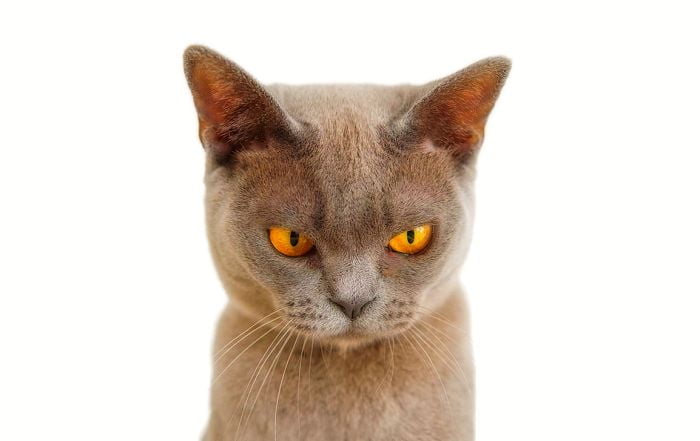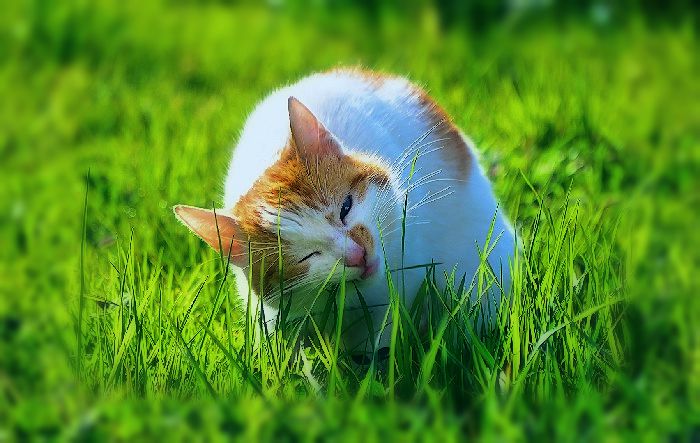Kitten will furnish you with long periods of entertainment and fun. However, your charming kitten will before long transform into a grown-up cat. To guarantee a long and pleasurable relationship with your pet, you ought to find out about standard feline behavior and how to deal with Cat’s behavior problems from occurring.
The most common feline behavior problems are related with elimination. A portion of these are connected with the litter box, while others reflect social struggles and include uneasiness or hostility. Much feline hostility is unpretentious and inactive, so its genuine recurrence might be enormously underrated.
For both the prevention and treatment of cat’s behavior problems, it is essential to be certain your cat can take part in typical feline behaviors. In spite of the fact that they can fluctuate between people, a cat’s major behavioral requirements incorporate eating (hunting), drinking, elimination (pee and dung), security, play and exploration, climbing, roosting, and scratching. Specifically, hunting and feeding needs may be fulfilled by giving food in little parcels over the course of the day and setting food or treats inside toys that require a control to deliver the food (batting, pursuing, rolling, pawing). To add a component of hunting, the cat can be given chances to pursue, jump on, and nibble toys you hang or pull before the cat.
Why do Cat’s Behavior Problems occur?
If your cat is unexpectedly misbehaving, you’re probably wondering why. What ended up making them so wicked? The problem is that cats live in a different world to us – a universe of scents, pheromones, and precise non-verbal communication that we people can’t comprehend.

At the end of the day, your cat is continuously expressing a specific kind of behavior for an explanation, yet those can be difficult as far as we’re concerned to decipher. We’ll show a portion of the common issues under every behavior beneath, however it’s critical to realize that cat behavior is in some cases the after-effect of a medical problem. If your cat out of nowhere changes an aspect of their behavior or character, an excursion to the vets to check they aren’t sick or in torment might be all together.
How to deal with cat’s behavior problems
A few behavioral issues come from a cat’s impulses, yet starting by precluding medical problems with your vet is ideal. If you suspect your cat is sick or in torment, look for veterinary consideration. Talk about supplements, medications, pheromones, special diets, and different things that are intended to help more seasoned cats or control excessive licking.
Litter Box Issues
This is probably one of the most common cat’s behavior problems prompting proprietor surrender. Cats will pee and defecate beyond the litter box which makes a wreck and bother. Cats are extremely simple to litter box train, typically showing them the litter box is sufficient. They instinctually use litter boxes as a spot to cover their waste and keep away from recognition by different hunters. It’s the reason they make such great indoor pets. Be that as it may, once in a while they quit utilizing the case and sorting out why is difficult. Meanwhile, you’re dealing with a cat that is defecating and peeing in the most badly designed places.
Certain purposes can incorporate a urinary plot disease that makes pee excruciating, another cat goes after the guilty party while they’re in the container and makes them not have a good sense of reassurance. Another expansion to the family can make pressure your cat and cause them to want to dissent. Or on the other hand maybe you’re not cleaning the container every now and again enough for their sterile preferences. If you can’t track down a reason, schedule a vet arrangement to preclude actual issues, for example, contamination or agonizing joints that make your cat avoid the litter box.
Scratch
Cats scratch to revive and hone their paws. Teaching your kitten to scratch in suitable spots and to acknowledge nail trimming can assist with dealing with harm to your furnishings. Purchase several scratching surfaces or scratching posts and spot them in several conspicuous region of the house. Place containers of high quality treats in the rooms with the scratching posts. At the point when your kitten scratches on the post, reward her with a treat. To support the message, you can likewise pet her while she’s at the scratching post; stroking her back will urge her to massage her paws. You can move the scratching presents on a more convenient location after she’s been utilizing the posts routinely.
Vocalizations
Furnishing your cat with something to keep it occupied while you rest might assist with dealing with night yelling. You could likewise give more exercise during the day so it’s less active at night.
Your cat might wail when it needs food, to head outside, or to be petted. The reaction you give your cat will prepare it to continue to make these vocalizations to get what it needs.
Chewing
While cats aren’t as unquenchable as possible dogs, they can in any case figure out how to cause a decent piece of harm with their teeth. Excessive chewing might be brought about by fatigue or aggression, or maybe in light of the fact that your cat is playing and partakes in the texture and taste of what they’re chewing. In kittens, chewing behavior might signify getting teeth or that they were weaned excessively youthful.
If your cat has a chewing problem, the initial step is to check with your vet to kill any dental problems. If you preclude this, it’s conceivable that your cat is taking their repressed aggression out on the item they’re chewing, and pheromones and enhancements might assist with diminishing this aggressive behavior.
Over-Grooming
Over grooming is another one of cat’s behavior problems Except if it’s a medical issue, sure it practices like excessive scratching, licking, balding, or skin injuries might indicate that your cat is pervaded with parasites. Luckily, parasites can be immediately managed. Converse with your vet about parasite control choices appropriate for your cat.
Eating grass
You feed your cat all the yummy kibble on the planet, so what’s going on with it eating grass like dogs. Experts have a few speculations. One is that they’re doing it to relieve their stomach, which can assist with gastrointestinal agitated or even assistance them with hairballs. It could likewise be a way for them to get specific supplements they don’t have in their diet, or essentially on the grounds that it’s a delectable bite.

Nighttime Activity
Cats are straightforwardly dropped from nighttime wild cats. They will quite often remain up the entire night and rest day in and day out. If your cat is excessively active at night, however, it can meddle with your rest and be staggeringly irritating. By changing you and your cat’s schedule, however, you’ll have the option to rest sufficiently over the course of the night.
To start with, ensure you feed your cat just before you hit the sack. Cats will quite often rest after a major dinner, so they’ll be more disposed to rest when you are if they’ve recently eaten. Second, schedule some play time with your kitty in the evenings. Attempt toys that truly stand out enough to be noticed, similar to something that emulates the sound of mice or birds. Play for some time or until your cat appears to be fairly worn out. What’s more, finally, integrate exciting advancement for your cat over the course of the day. Toys, playtime, cat nip, boxes and other fun things will keep your cat active during the day, accordingly permitting them to catch some shut eye at night.
Whatever you do, don’t get up and take care of your cat around midnight. If they know their whimpering and noisy commotions will compel you to rise and feed them or “play” with them, they’ll be more disposed to continue the example. Before long, you and your cat will be in total agreement, resting savvy, and have soundless nights together.
Aggression
Asking yourself if anything in your cat’s environment has changed is the best approach to take if your cat is acting more aggressively than usual, such as hissing, baring her teeth, having her hair stand up, or biting. A new cat or pet can make her feel bullied because cats can be territorial. This may also apply to new family members, such as kids. She may act aggressively in order to hide her sadness. Cats are excellent at masking their pain, but if they are in discomfort, they may become aggressive. The negative conduct can be improved by training. Giving her praise for excellent behaviour will encourage the good and discourage the bad.
Fleas
If your kitty is chewing, scratching, or licking frequently, if they are losing hair, or has bothered skin, they might have bugs, the most widely recognized external parasite disturbing pets.
It just takes one bug hitching a ride inside to begin an attack, however luckily you can handle insects without any problem. Contact with your vet about insect control choices, then, at that point, make certain to treat every one of the cats in you house: If one has bugs, they probably all do. Furthermore, in light of the fact that some insect control medications for dogs can be lethal to cats, be certain you utilize just medications made specifically for cats.
When should you concern about cat’s behavior problems?
Any unexpected changes in your cat’s appearance or behavior ought to be treated in a serious way, particularly if your cat’s behavior affects her personal satisfaction. Unfortunate behaviors like aggression, peeing outside her litter box, and stowing away could indicate a psychological problem like anxiety, however they could likewise be side effects of an actual disease that requires veterinary intercession. Try not to hold on until unexpected problems develop. The sooner your cat gets treatment for her behavioral or actual issues, the better opportunity she has of returning to typical. If all else fails, consistently consult your vet with respect to your cat’s health.
Pet Insurance for Cat’s behavior problems
Cat’s behavior problems can be a major issue that disturbs the whole family. Cat guardians who are confounded could even consider surrendering their cat to a safe house. That is one motivation behind why Pet Health Insurance plans incorporate behavioral inclusion. This inclusion can repay you for the expenses of diagnosing and treating a wide range of behavioral issues.








